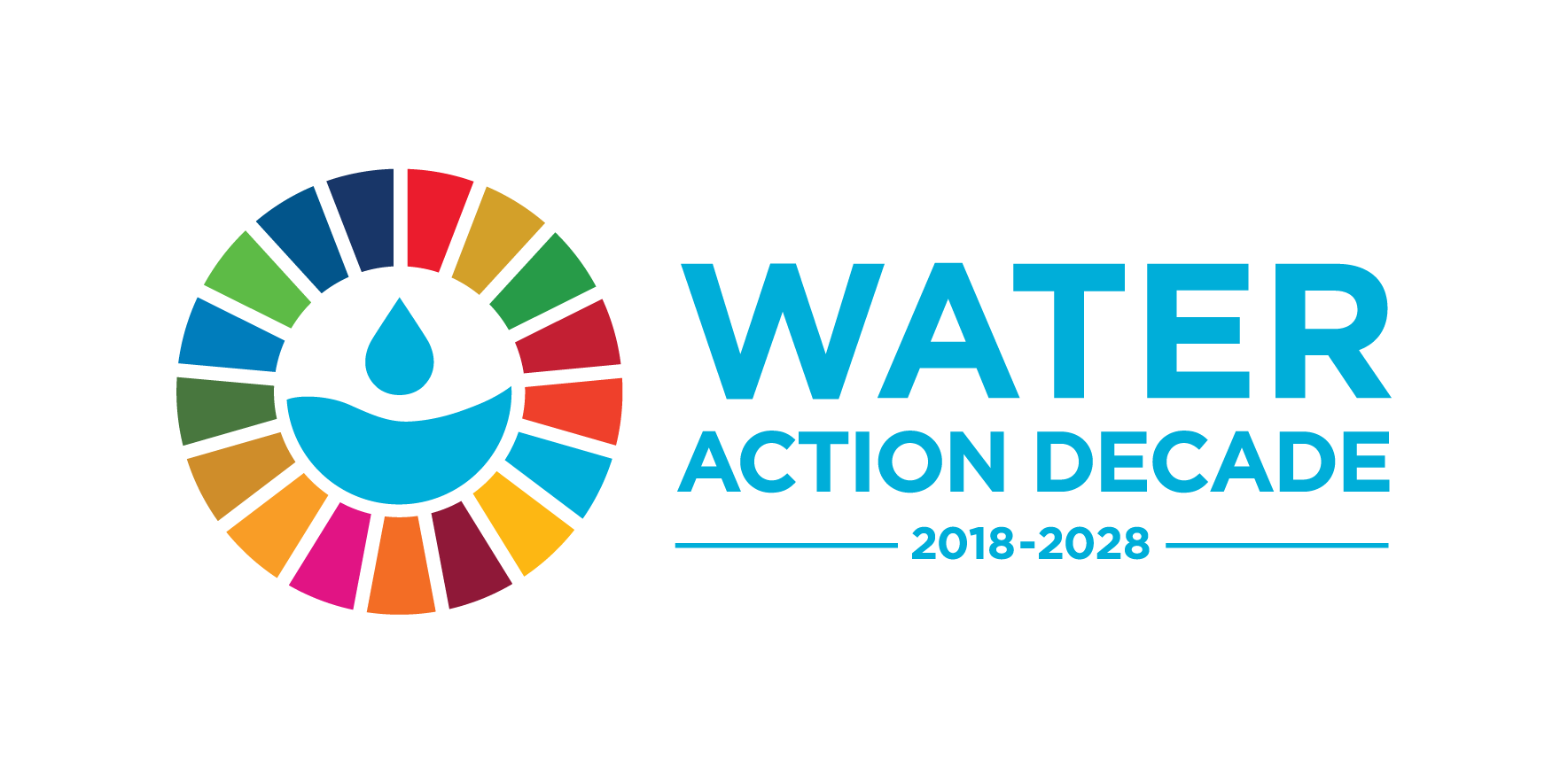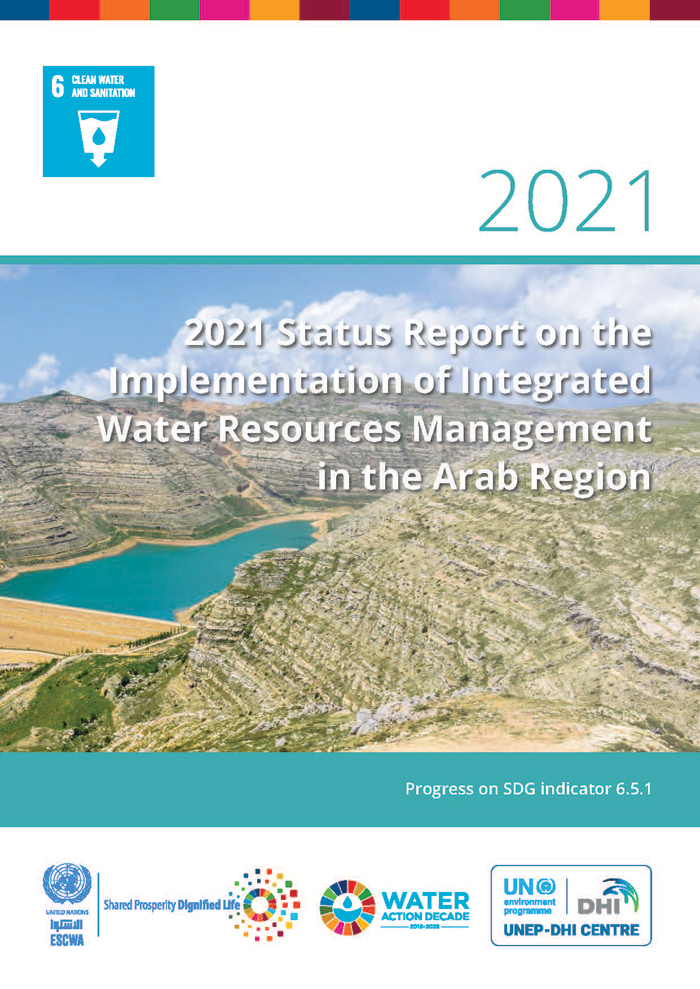The Arab Regional Preparatory Meeting, which was held on 18 and 19 May 2022, aimed at consolidating regional progress on internationally agreed water-related goals to provide regional input to the report of the Secretary General to the United Nations’ 2023 Water Conference thus ensuring Arab priorities are reflected in the decade’s global midterm review. The meeting gathered representatives from 18 Arab States from relevant ministries and national institutions and representatives from regional and international organizations as well as United Nations organizations, international and regional financial institutions, academia, private sector, and civil society. Key messages and recommendations resulting from the meeting were grouped under six thematic priorities and four accelerators to move forward towards the achievement of internationally agreed water related goals. They are as follows:
- Thematic Priorities:
- Integrated Water Resource Management (IWRM): (1) enabling environment (policies, laws, plans); (2) institutions and stakeholder participation; (3) management instruments; and (4) financing
- In order to advance progress on IWRM SDG indicator 6.5.1, the following is crucially needed: coherent governance within and across sectors, improving availability and access to data and information, leveraging innovation and technologies, unleashing female and youth potential and improving transboundary cooperation.
- Effective coordination and legislation; capacity development; data sharing; improved master planning and management at basin level, stronger political will, multi-stakeholder engagement and a participatory approach to support achievement of IWRM.
- Evidence-based decision-making and policy coherence to support the development of effective policies, laws and plans.
- Water for All: SDG 6.1, 6.2, water in countries facing conflict, occupation and sanctions:
- Water and sanitation services are human rights, not just a commodity. Access should not be affected by water allocations to other sectors, and it should be available to all, especially poor and vulnerable groups, irrespective of their ability to pay for the service
- Increased investment needed in the technical and human resources capacities of water operators and water infrastructure to improve delivery of services
- Consider the energy component and its cost in water supply and wastewater services
- Strengthen the resilience of water services to conflict-related and to other kinds of hazard, before and during crises to prevent the reversal of development progress and the decline in water services resulting from protracted conflicts and to respect International Humanitarian Law when ensuring water for all under conditions of conflict.
- Consider the complexity and the systemic nature of water services in addressing the challenges that communities, water service providers and governments face during protracted conflicts. Humanitarian and development actors need to strengthen their partnerships in both anticipating and responding to protracted conflict and other crises
- Recommendations to the UN system and international community:
- The international community and humanitarian organizations to move quickly to relieve the suffering of Arab citizens in some Arab countries whose water situation is critical and suffering from wars and conflicts
- Development interventions need to be aligned with national priorities with greater cooperation needed between humanitarian and development agencies, to strengthen the resilience of water service before and during protracted crises
- Transboundary Water Cooperation:
- Widen the circle of participation and identify win-win solutions and science-based policy making that can foster water cooperation. Cooperation should include sharing data, monitoring, forecasting and warning and capacity development, among other measures
- Develop mechanisms for cooperative and knowledge-based water management and to establish a governance structure for transboundary cooperation including legal, technical and financial mechanisms.
- Establish research centres for shared water resources, that cover data exchange, data collection and feasibility studies for possible projects and that address climate change impacts.
- Implement capacity development programs, especially in developing countries, to build water negotiation and mediation capacities. This contributes to preventing conflicts and building cooperation opportunities and to establishing regional stability and security through political dialogue and water diplomacy.
- Recommendations to the UN system and international community: The international community must do more to prevent human-induced water scarcity and displacement, not only within States but equally in a transboundary context and in areas under occupation.
- Water and Climate Change
- Promote the implementation of science-based assessment to inform action on water and climate and establish a common regional knowledge base shared by regional stakeholders and partners to inform cooperation on water and climate
- Mainstream climate across water and water-dependent sectors, like agriculture, and increase access to climate finance for adaptation in the water sector
- Join actions that address climate and water issues to reduce risks and save lives. Close cooperation between authorities working on climate and water could be promoted for example through joint review of planned or ongoing Nationally Determined Contributions (NDC) and National Adaptation Plans (NAP) actions
- Water Use Efficiency and Water Resource Management
- Extend support to water operators operationally in terms of human capacity development to improve the operation of water resources and the cost recovery of operations.
- Increase national-level capacities to enhance the monitoring of water-use efficiency across sectors and provide guidelines for decision-makers and water resource planners to improve the allocation of water resources at country level
- Improve cost recovery in government-run projects by engaging the private sector and local communities, through collaborative, clear and transparent frameworks
- Improve efficiency in the provision of water services, determine the exact economic value of water in different sectors without neglecting the social and cultural values, and review strategies to enhance financial returns.
- Calculate and reduce water loss resulting from production, post-harvest losses and food waste
- Shift from “sustainability of supply” to “sustainability of consumption” through the adoption of structural, socio-political and economic policy instruments, the latter being the most effective and can enhance cost recovery.
- Improve agricultural water management by raising irrigation efficiency and productivity through modern farming and irrigation systems, adopting smart farming systems, selecting drought and salt tolerant crops, increasing R&D, providing farmers with appropriate training to adopt modern farming system and increase their participation in decision making
- Water Across Sectors / Non-conventional Water Resources
- Promote cross-sectoral partnerships, cooperation, technologies and financing mechanisms as well as institutional frameworks that link water and other relevant sectors
- Keep water security at the centre of the WEF nexus because food and energy security cannot be achieved without it.
- Enhance capacity and knowledge on the benefits and opportunities of using treated wastewater.
- Consider the energy needs and costs to ensure the delivery of non-conventional water resources. This requires a water-energy nexus lens and drawing upon renewable energy sources that could create green job opportunities, particularly for youth
- Support the use of non-conventional water resources in water-scarce countries through appropriate technology transfer, financing, and capacity development that engage national and regional institutions and research centres, and local knowledge
- Include in public policies the promotion of production and use of non-conventional water and linking it to public health and food production.
- Accelerators:
- Financing water
- Enhance access to innovative and blended financing for the water sector
- Improve preparation of bankable water projects
- Improve operation and maintenance and increase efficiency of water utilities to improve their credit worthiness
- Encourage private sector engagement thru improved data monitoring and reporting, certainty on cost-recovery and credit guarantees
- Encourage collaboration between bilateral donors and private banks to provide grants/credits/human resources to support the delivery of water services
- Prioritize funding of projects that respond to country water priorities
- Assist countries, especially in fragile or conflict situations, to access funding opportunities and ensure financial sustainability of projects.
- Increase financing for water projects by twinning water objectives with other development objectives related to health, human rights, food security and climate resilience
- Incorporate sustainable financing, regulation, monitoring, reporting, and maintenance mechanisms into water-related project interventions
- On climate finance for water sector:
- Increase climate finance for adaptation and specifically for adaptation related to water
- Increase finance in the form of grants and not debt
- Direct more funding towards smart technologies and non-conventional water resources
- Prioritise funding to the most vulnerable countries in the region and to the most vulnerable areas to climate change
- Data to inform decision-making, monitoring and implementation
- Improve data availability, accessibility and sharing especially in transboundary settings to better inform decision-making
- Establish national and regional water data platforms to inform water management
- Encourage use of new technologies, such as earth observation and big data, combined with improved data analysis
- Use remote sensing to support risk management, disaster risk management and monitoring water-related ecosystem
- Innovation
- Water for Jobs: encourage young entrepreneurs through start-up funding needed
- Encourage innovation in early warning centres and institutions to reduce disaster risks
- Foster creativity and new ideas by bringing different areas of expertise together
- Innovation should draw upon local solutions and indigenous knowledge, and it requires linkages across sectors
- Private sector can help with innovation, upscaling and dissemination
- Surface and groundwater resources management can be improved by innovations in governance
- Capacity development and regional knowledge networks
- Foster regional cooperation and partnerships to achieve Decade goals
- Start water education and enhancing knowledge on water from an early stage, including training youth on groundwater
- Implement capacity development programs that provide start-ups with entrepreneurial, finance, marketing skills as well as technical training for water demand management and water-saving technologies
- Capacity development on water diplomacy
- Implement professional training in different areas of water to strengthen knowledge and innovation
- Train farmers on modern and efficient irrigation systems through the establishment of irrigation consultancy services











